I know how important it is to keep children engaged in educational activities. With so many distractions in today’s world, it can be a challenge to find activities that are both fun and educational. However, there are plenty of activities that can help children learn while having fun at the same time.
One way to keep children engaged in learning is through hands-on activities. Activities like building with blocks, creating art projects, or conducting science experiments can help children develop important skills like problem-solving and critical thinking. Additionally, these activities can help children develop a love of learning that will last a lifetime.
pin it!
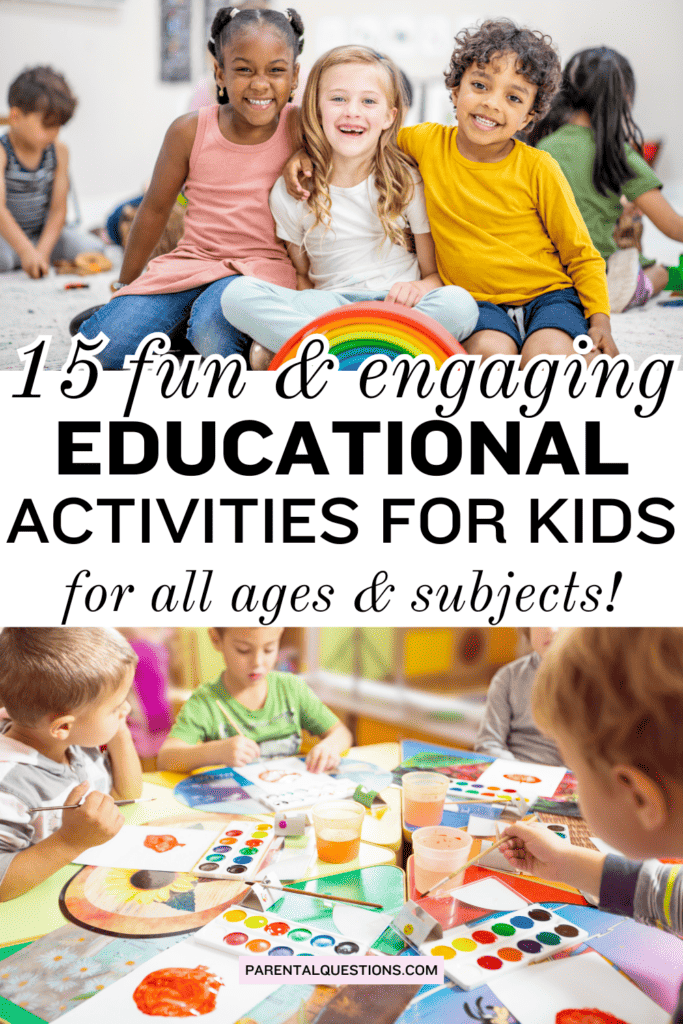
Another way to keep children engaged in learning is through educational games and apps. With so many options available, it’s easy to find games that are both fun and educational. Whether your child is interested in math, science, or reading, there are games and apps that can help them learn while having fun at the same time.
Understanding the Importance of Educational Activities
I have come to understand the importance of educational activities in a child’s learning journey. Educational activities are structured tasks or games designed to impart specific knowledge or skills to kids.
These activities can range from reading exercises and math problems to hands-on science experiments and interactive learning games, all aimed at enhancing a child’s understanding and cognitive development.
One of the primary benefits of educational activities for kids is that they help to focus their attention on the task at hand. When children are engaged in activities that are both fun and educational, they are more likely to stay focused and retain the information they are learning. This increased focus can also help to improve a child’s overall academic performance.
Another benefit of educational activities is that they can help children to develop a love of learning. When kids are exposed to new and exciting information in a fun and engaging way, they are more likely to become curious and interested in learning more. This can lead to a lifelong love of learning and a desire to explore new ideas and concepts.
In addition to improving focus and fostering a love of learning, educational activities can also help children to develop important life skills. For example, many educational activities require children to work together in groups or pairs, which can help to improve their social skills and ability to communicate effectively with others.
Check out these other related posts:
- Craft Ideas for Kids: Fun and Easy DIY Projects for Creative Minds
- Fun Things to Put in Balloons
- 4-Year-Olds Birthday Ideas:
Mathematics is an important subject for kids to learn as it helps them develop critical thinking and problem-solving skills. There are many fun and engaging activities that parents and educators can use to help kids learn math concepts. In this section, I will cover some of the best mathematical activities and games for kids.
Counting and Numbers
Counting and numbers are the foundation of mathematics. Parents and educators can use a variety of activities to help kids learn to count and recognize numbers. For example, parents can use everyday objects like toys, fruits, or vegetables to help kids learn to count. They can also use flashcards or worksheets to help kids practice writing numbers.
Shapes and Fractions
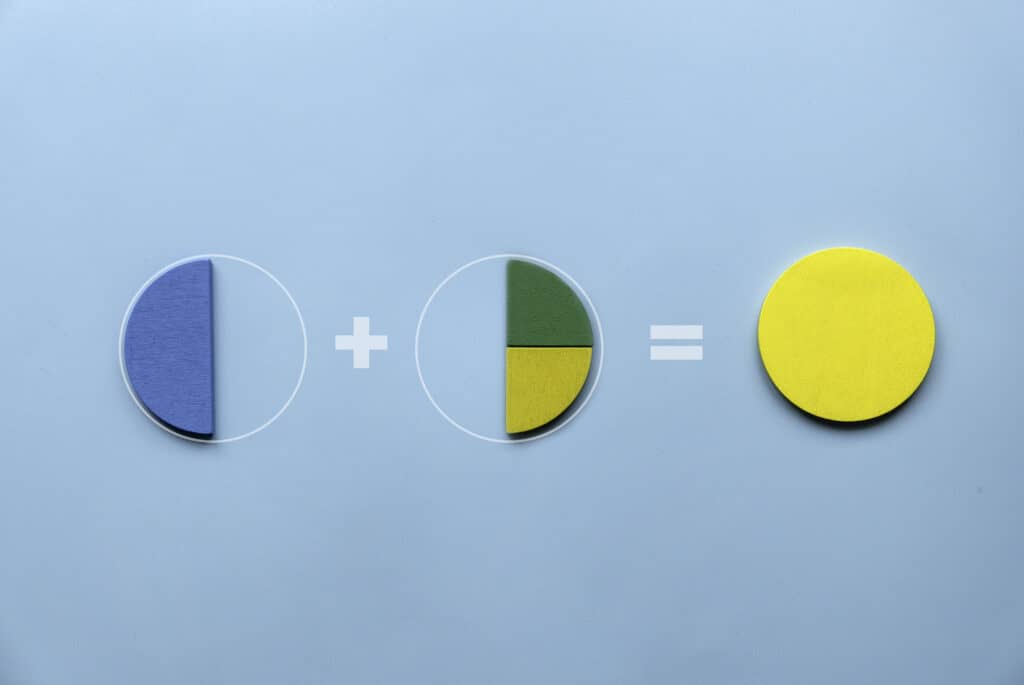
Shapes and fractions are important concepts in mathematics. Parents and educators can use a variety of activities to help kids learn about shapes and fractions. For example, they can use shape blocks or puzzles to help kids recognize and identify different shapes. They can also use visual aids like pizza or pie charts to help kids understand fractions.
Interactive Math Games
Interactive math games are a great way to make learning math fun and engaging for kids. There are many online math games that parents and educators can use to help kids learn math concepts.
For example, websites like Math Playground and ABCya offer a variety of math games for kids of all ages. These games help kids learn math concepts like addition, subtraction, multiplication, division, and more.
In conclusion, there are many fun and engaging activities that parents and educators can use to help kids learn math concepts. By using these activities, kids can develop critical thinking and problem-solving skills that will help them succeed in school and beyond.
Science Adventures
I am always looking for fun and educational activities to do with my kids. One of the best ways to engage them is through science adventures. Here are three ideas that are sure to spark their curiosity and teach them something new.
Weather Exploration
Weather is a fascinating topic that kids love to learn about. One way to explore weather is by creating a weather station. This can be as simple as a thermometer, barometer, and rain gauge.
Kids can record the temperature, air pressure, and precipitation each day and compare it to the previous day’s data. This is a great way to teach them about data collection and analysis.
Another fun weather activity is making a tornado in a bottle. This is a simple experiment that only requires a plastic bottle, water, and dish soap. By swirling the bottle, kids can create a mini tornado and learn about the science behind it.
Gardening and Nutrition
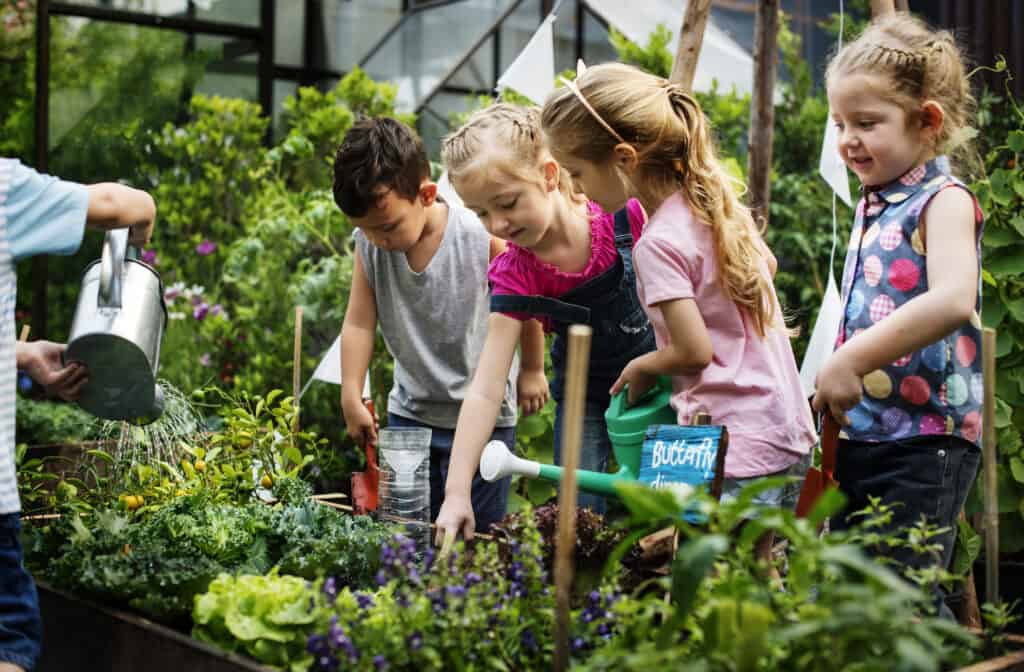
Gardening is a great way to teach kids about nutrition and where their food comes from. Start by planting some easy-to-grow vegetables like tomatoes, carrots, and lettuce. Kids can help with watering, weeding, and harvesting. This is a great way to teach them responsibility and the importance of taking care of living things.
To take it a step further, you can also teach them about nutrition. Talk about the different vitamins and minerals in each vegetable and why they are important for our bodies. You can even make a chart to track how many servings of each vegetable they eat each day.
Stargazing and Constellations
Stargazing is a fun and educational activity that kids of all ages can enjoy. Start by finding a good spot away from city lights. Then, use a star chart to identify different constellations. You can even make your own by poking holes in a piece of paper and holding it up to the sky.
Another fun activity is making a constellation viewer. This can be as simple as a cardboard tube with constellation cutouts. Kids can hold it up to the sky and try to find the matching constellation. This is a great way to teach them about patterns and shapes.
Science adventures are a great way to engage kids and teach them something new. Whether you are exploring weather, gardening, or constellations, there are endless opportunities to learn and have fun.
Language and Literacy Skills

I know that language and literacy skills are crucial for young learners. These skills lay the foundation for communication, reading, and writing. Here are some activities that can help kids develop their language and literacy skills.
Alphabet and Spelling
Learning the alphabet and spelling are important for young learners. One fun activity is to create an alphabet chart with your child. Write each letter in uppercase and lowercase and include a picture of an object that starts with that letter. This can help kids associate letters with sounds and words.
Another activity is to play spelling games. One game is to have your child spell words with magnetic letters or letter tiles. You can also make it a competition by timing how long it takes them to spell a word correctly.
Vocabulary and Grammar
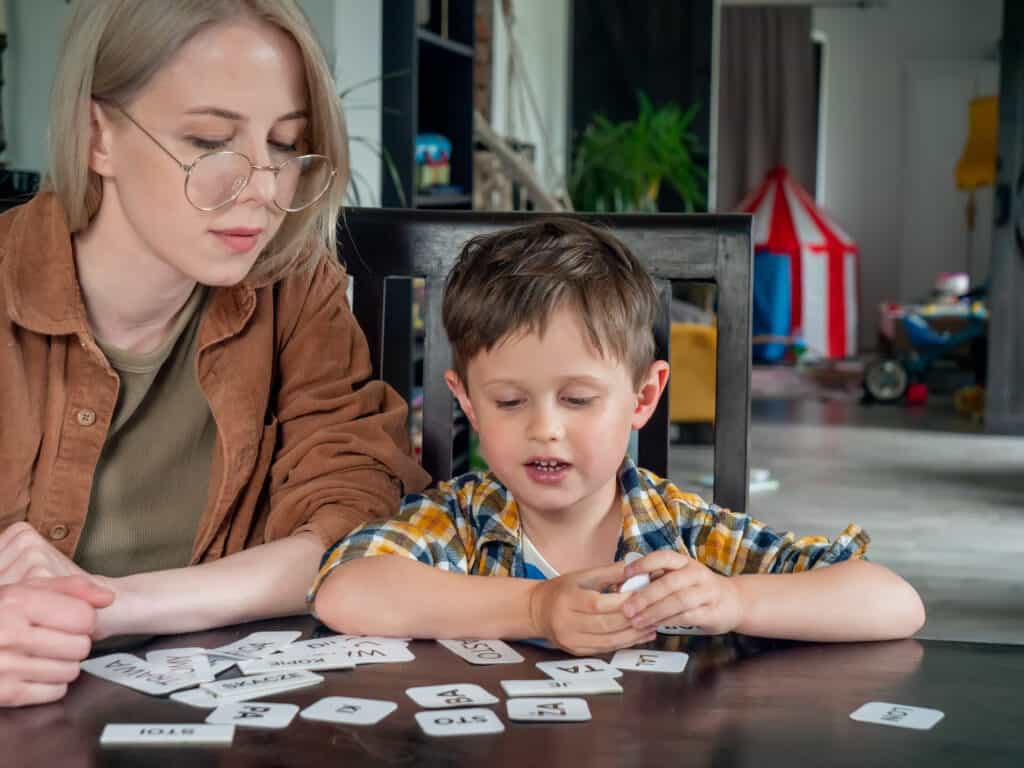
Building vocabulary and understanding grammar are essential for effective communication. One activity is to have your child create a word journal. Each day, they can write down a new word they learned and its definition. This can help expand their vocabulary and improve their writing skills.
To improve grammar, you can play a game called “Sentence Scramble.” Write a sentence on a piece of paper and cut it into individual words. Have your child put the words in the correct order to form a complete sentence. This can help them understand sentence structure and improve their writing skills.
Reading Readiness
Reading readiness is important for young learners to prepare them for reading. One activity is to practice sight words. Write common sight words on index cards and have your child practice reading them. You can also make it a game by having them find the sight words in a book or magazine.
Another activity is to read to your child every day. Choose books that are appropriate for their age and reading level. This can help them develop a love for reading and improve their reading comprehension skills.
By incorporating these language and literacy activities into your child’s daily routine, you can help them develop important skills for communication, reading, and writing.
Creative Play and Crafts
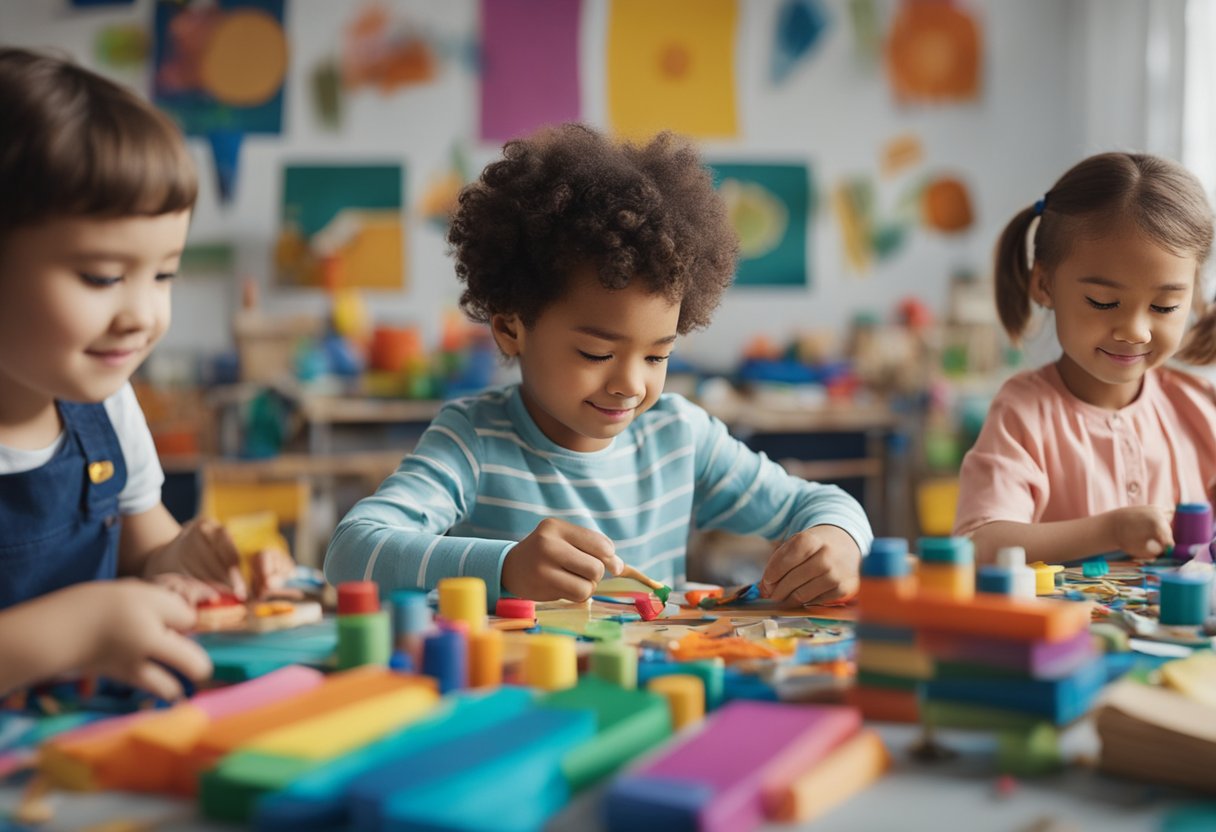
Crafts and creative play are great ways to encourage children to use their imagination and develop their creativity. These activities can help children learn new skills, improve their memory and sorting abilities, and have fun while doing so.
DIY Crafts
DIY crafts are a great way to encourage children to use their creativity and imagination. These activities can be simple or complex, depending on the age and skill level of the child. Some popular DIY crafts include making paper crafts, painting, and creating jewelry.
One of my favorite DIY crafts is making paper flowers. It’s a simple activity that requires only a few materials, and it’s a great way to teach children about colors and shapes. To make paper flowers, you will need colored paper, scissors, glue, and a pencil. Cut the paper into different shapes, such as circles, squares, and triangles, and then glue them together to create a flower. You can also add a stem by using a pencil as a base and wrapping green paper around it.
Storytelling and Imagination

Storytelling and imagination are important skills for children to develop. These activities can help children learn new vocabulary, improve their memory, and develop their creativity. One fun way to encourage storytelling and imagination is by playing a game of “storytelling telephone.”
To play this game, sit in a circle with a group of children and whisper a sentence into the ear of the child next to you. That child then whispers the sentence to the next child, and so on, until the sentence comes back to you. The final sentence is usually very different from the original, which can lead to lots of laughter and fun.
Memory and Sorting Games
Memory and sorting games are great ways to help children improve their cognitive skills. These activities can help children learn new concepts, improve their memory, and develop their problem-solving abilities. One popular memory game is “Memory Match.”
To play Memory Match, you will need a deck of cards with matching pairs. Shuffle the cards and lay them face down on a table. Each player takes turns flipping over two cards. If the cards match, the player keeps them and takes another turn.
If the cards don’t match, the player flips them back over, and the next player takes a turn. The player with the most matching pairs at the end of the game wins.
Crafts and creative play are great ways to encourage children to use their imagination and develop their cognitive skills. These activities can be simple or complex, depending on the age and skill level of the child, and they can be done alone or with others.
By incorporating these activities into your child’s routine, you can help them learn new skills, have fun, and develop their creativity.
Resources for Educational Activities
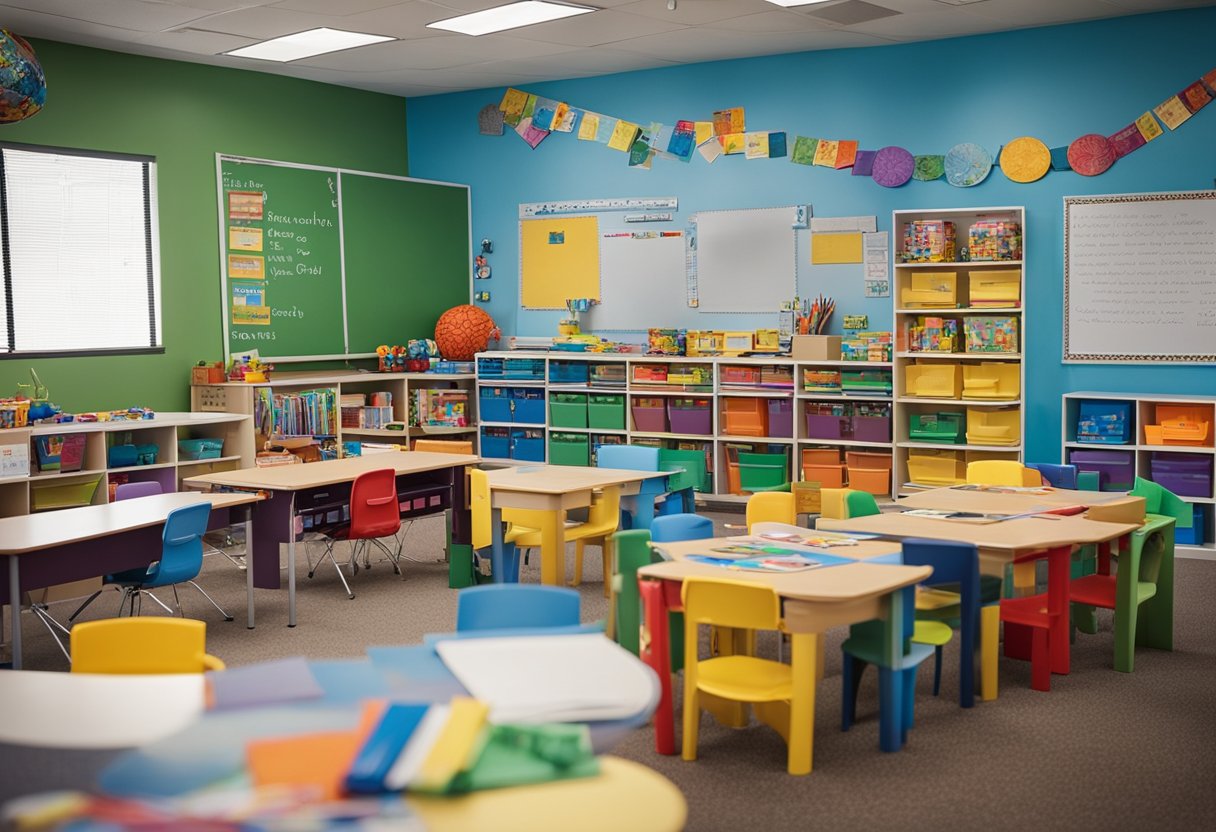
As a parent or educator, finding the right resources for educational activities can be challenging. There are many options available, and it can be difficult to know where to begin. In this section, I will highlight some of the best resources for educational activities that I have found.
Printables and Worksheets
Printables and worksheets are a great way to engage children in learning activities. There are many websites that offer free printable worksheets on a variety of subjects, including math, reading, and science. One of my favorite websites for printable worksheets is Education.com.
They offer a wide range of worksheets for children of all ages, and the worksheets are organized by subject and grade level. Another great website for printable worksheets is Super Teacher Worksheets. They offer a variety of worksheets, including math, reading, and social studies, and their worksheets are also organized by grade level.
Websites and Blogs
There are many websites and blogs that offer educational activities for children. One of my favorite websites for educational activities is Time for Kids. They offer a variety of articles and activities on a range of subjects, including science, social studies, and current events.
Another great website for educational activities is MrNussbaum.com. They offer over 10,000 online and printable activities, including games, tutorials, simulations, and videos for kids ages 5-14. Their activities are organized by subject and grade level, making it easy to find the right activity for your child.
In conclusion, there are many great resources available for educational activities. Whether you are looking for printables and worksheets or websites and blogs, there are many options available to help engage your child in learning. By using these resources, you can help your child develop a love of learning that will last a lifetime.
Activities for Different Age Groups
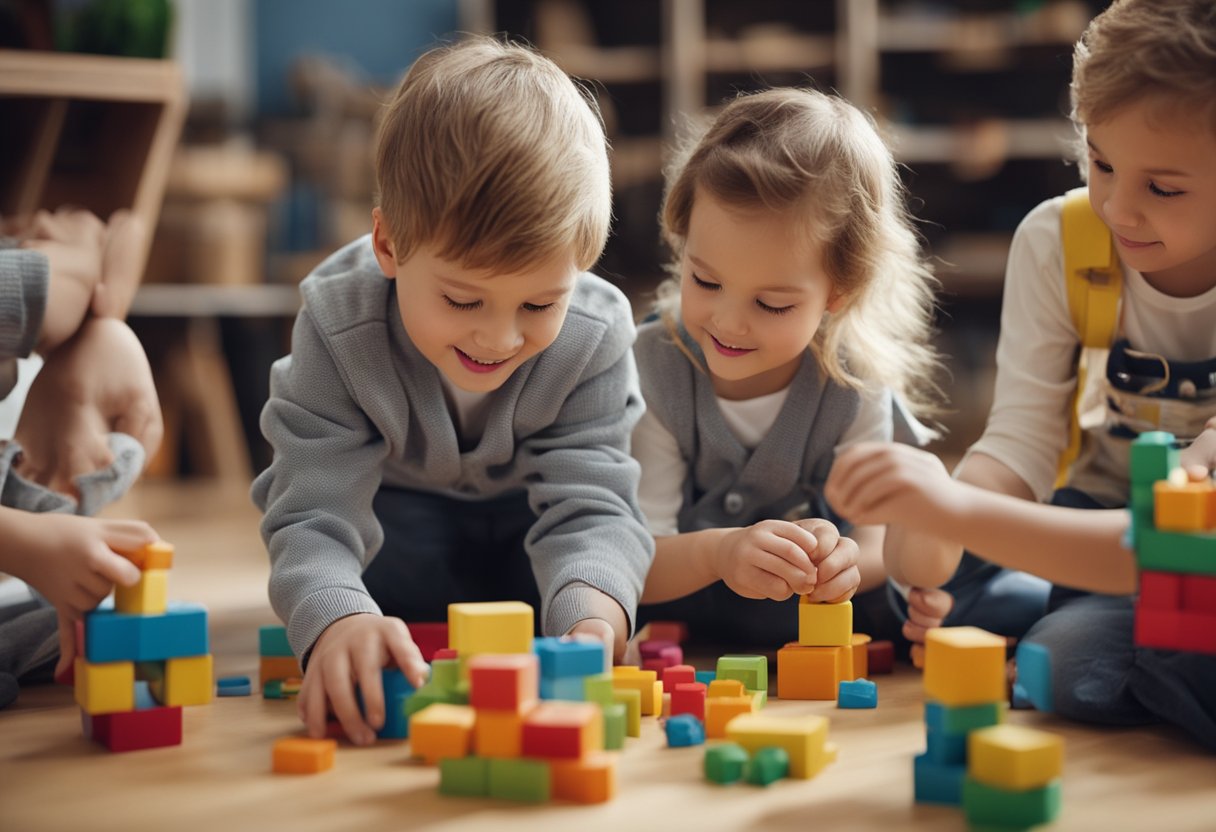
I know that educational activities for kids should be tailored to their age group. Here are some fun and engaging activities for preschoolers and school-age kids.
Preschool Activities
Preschoolers are curious and love to explore. They are also developing their fine motor skills and hand-eye coordination. Here are some activities that can help them learn while having fun:
- Sensory Bins: Fill a bin with materials like rice, beans, or sand, and let preschoolers explore and play. This activity helps with sensory development and can be a great way to introduce new vocabulary.
- Shape Sorting: Cut out shapes from different colored paper and have preschoolers sort them into the correct shape. This activity helps with shape recognition and fine motor skills.
- Obstacle Course: Set up an obstacle course using pillows, chairs, and other household items. This activity helps with gross motor skills and can be a fun way to get some exercise.
School Age Activities
School-age kids are more independent and have a longer attention span. They are also developing their critical thinking skills and creativity. Here are some activities that can help them learn while having fun:
- STEM Challenges: Have kids build structures using materials like toothpicks and marshmallows or create a boat that can float using aluminum foil. These activities help with problem-solving and critical thinking skills.
- Board Games: Play board games like chess or Monopoly with kids. These games help with strategy and math skills.
- Art Projects: Have kids create art using different materials like paint, markers, or clay. This activity helps with creativity and fine motor skills.
In conclusion, educational activities for kids should be tailored to their age group. Preschoolers benefit from sensory play and shape recognition activities, while school-age kids benefit from STEM challenges and board games. By providing age-appropriate activities, we can help kids learn while having fun.
pin it!
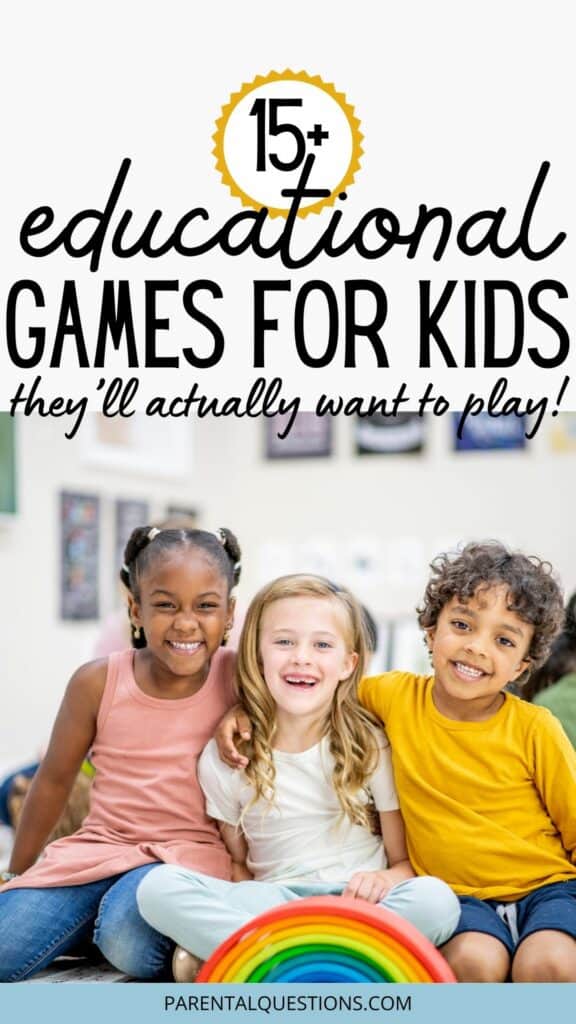
Frequently Asked Questions
What are some fun educational activities for kids?
As a parent or teacher, you can make learning fun for kids by engaging them in various educational activities. Some fun educational activities for kids include playing educational games, doing puzzles, reading books, watching educational videos, and doing science experiments. These activities are not only fun but also help children learn and develop critical thinking skills.
What are the 5 learning activities?
The five learning activities are reading, writing, listening, speaking, and problem-solving. These activities help children develop their cognitive, social, and emotional skills.
Reading helps children improve their vocabulary and comprehension skills, while writing helps them express their thoughts and ideas. Listening and speaking activities help children develop their communication skills, and problem-solving activities help them develop their critical thinking skills.
What activities help children learn?
There are many activities that can help children learn, such as playing educational games, doing puzzles, reading books, watching educational videos, and doing science experiments. These activities help children develop their cognitive, social, and emotional skills and make learning fun and engaging.
What are some creative activities for kids?
Creative activities for kids include drawing, painting, sculpting, crafting, and playing music. These activities help children develop their creativity and imagination, and also improve their fine motor skills. Encouraging creativity in children can help them become more innovative and problem-solvers in the future.
What are some indoor activities for kids?
Indoor activities for kids include playing board games, doing puzzles, reading books, building with blocks, and doing science experiments. These activities are great for rainy days or when it’s too hot or cold to play outside. They are also fun and engaging ways to keep children entertained and learning.
What are some printable children’s learning activities?
Printable children’s learning activities include coloring pages, word searches, crossword puzzles, mazes, and educational worksheets. These activities are great for children who enjoy hands-on learning and can be easily printed out and completed at home or in the classroom. They are also a great way to reinforce concepts learned in school.

Mo Mulla is a work-from-home dad who co-parents 2 beautiful children and blogs all about his lifestyle with smart parenting tips and practical lifestyle hacks!
